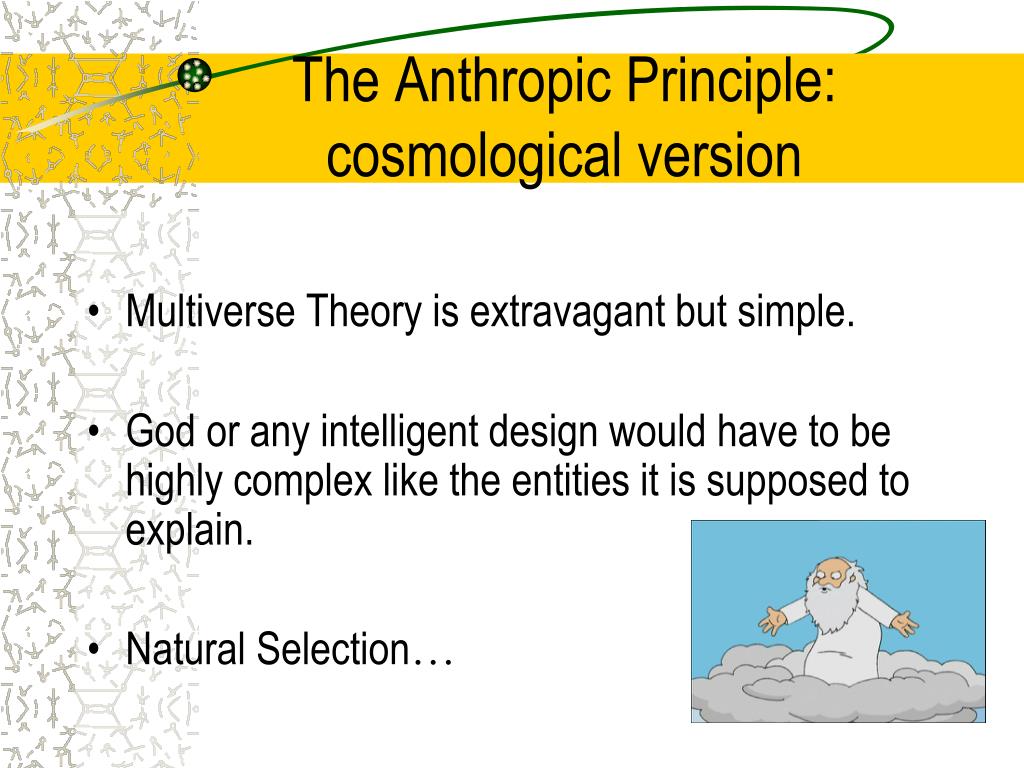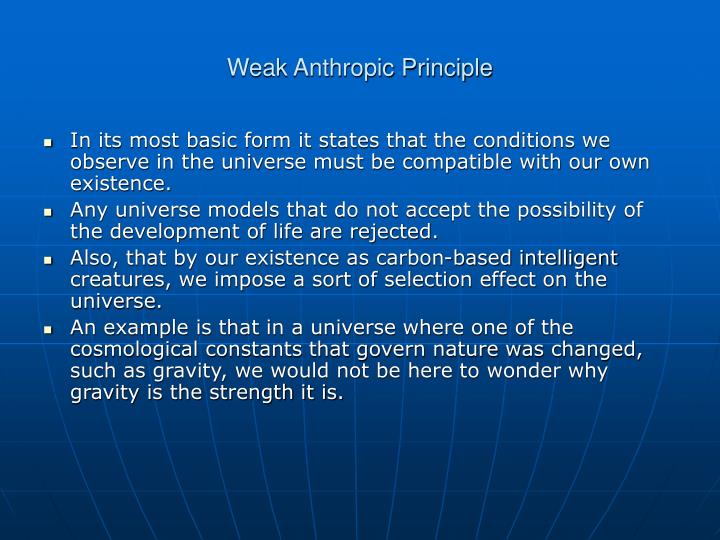
#ANTHROPIC PRINCIPLE DEFINITION SERIES#
The very specific series of events, coincidences, emergent properties, parameters of natural laws and any number of contributing factors seem to form a vast tapestry of directed probability towards our existence. In the context of Big History, we are examining a historical thread-of-pearls measured by a sequence of Thresholds which culminate in the arrival of sentient creatures who develop the scientific wherewithal to look back into the conditions of their origins. The Anthropic Principle comes in two flavours: weak and strong.Ī) : conditions that are observed in the universe must allow the observer to exist - called also weak anthropic principleī) : the universe must have properties that make inevitable the existence of intelligent life - called also strong anthropic principle The belief that our own existence in the Universe is in some sense probable or even inevitable is known as the Anthropic Principle. we exist and have the technical and intellectual capacity required to know the conditions required for us to do so), we might presume that our own arrival on the cosmic stage is a self-evident inevitability. Looking back at the history of the Universe in this way and from the privileged viewpoint we possess (i.e. Looking back retrospectively to claim that the emergent properties of a specific system at a specific time are an inevitability is a little like looking back at a map that we have been drawing as we are travelling through unknown terrain - of course any significant geographical features will appear in retrospect to have been inevitable as, having now been recorded in the map, they clearly come into (intelligible) existence at the moment of being recorded. If we look back at the conditions which generate the emergence of any specific Threshold we may interpret those Goldilocks conditions as predetermining the conditions which allow for a new form of complexity which emerges at that historical moment.


We can consider that in some measure each Threshold requires “ Goldilocks” conditions where the context and constituents of an environment are “ just right” for the spontaneous emergence of fundamentally new and novel forms of self-organising complexity. When seen through the framework of Big History we can define our various domains of study as Thresholds. It examines long time frames using a multidisciplinary approach based on combining numerous disciplines from science and the humanities, and explores human existence in the context of this bigger picture.” Wikipedia.

“Big History is an emerging academic discipline which examines history from the Big Bang to the present.


 0 kommentar(er)
0 kommentar(er)
